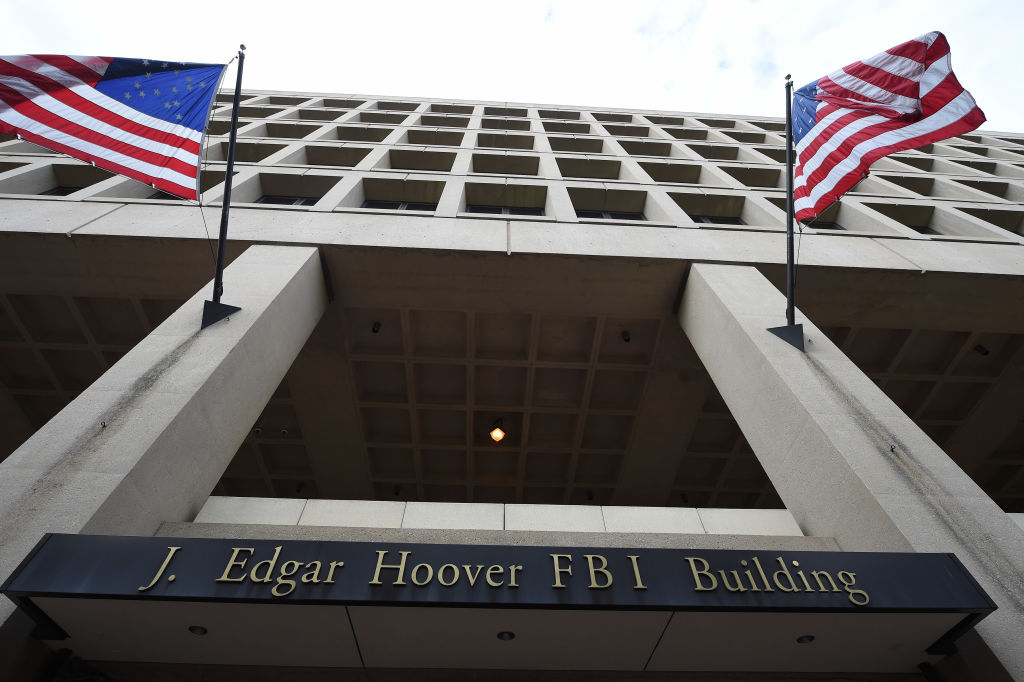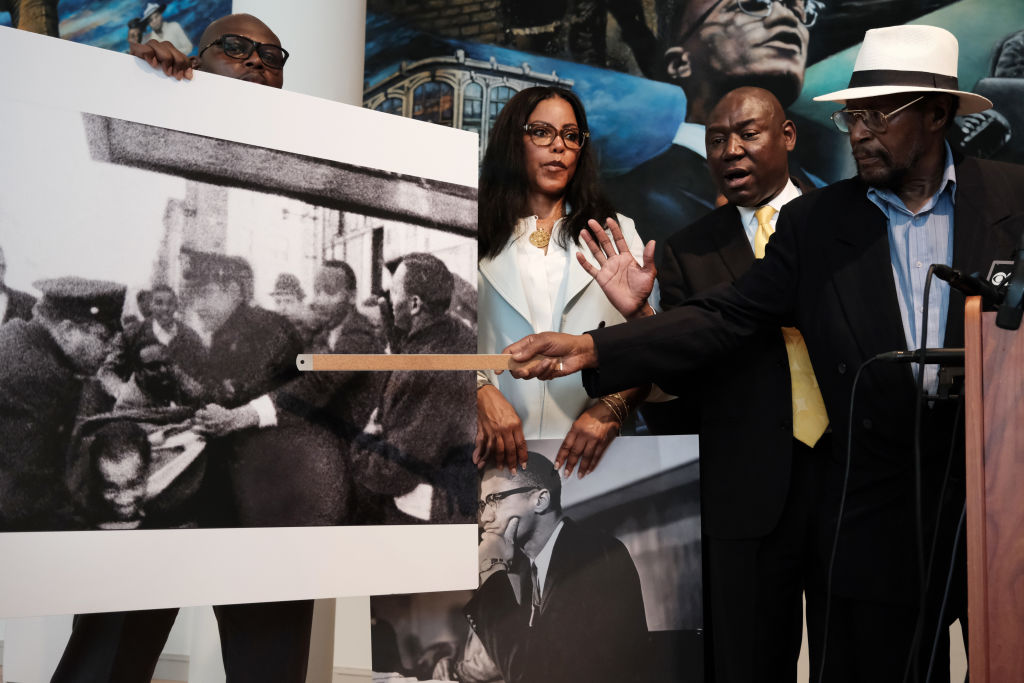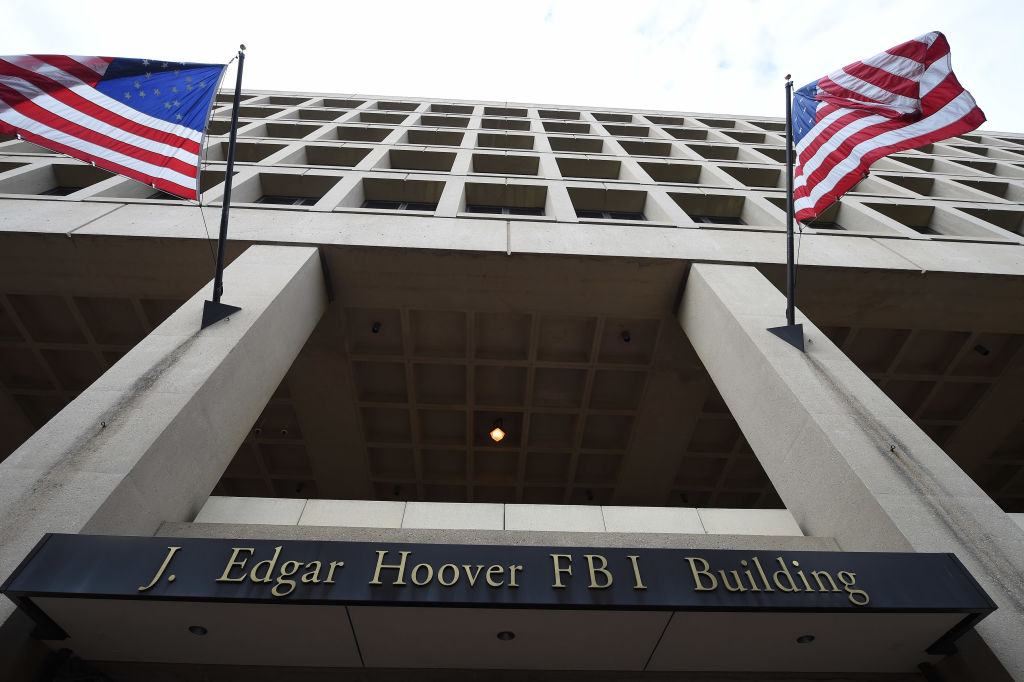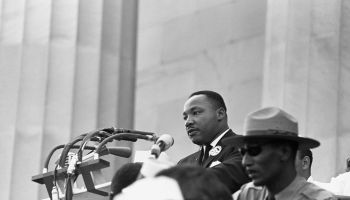
The exterior of the J. Edgar Hoover Building, which is the headquarters of the FBI, in Washington, D.C. | Source: The Washington Post / Getty
In the early 1960s, young Black activists, including John Lewis, Dianne Nash and Julian Bond came together to fight back against injustice, advance social change, and win civil rights. This group of young people decided to form the Student Nonviolent Coordinating Committee (SNCC). However, SNCC faced many obstacles during its time in the Civil Rights Movement, including federal surveillance designed to discredit its activities. Under the guise of protecting the nation’s national security, the Federal Bureau of Investigation used the Counterintelligence Program (COINTELPRO) to spy on SNCC and other civil rights leaders (including Dr. Martin Luther King, Jr., Malcolm X, Bayard Rustin and so many others). Even in the face of tremendous wins and progress, the federal campaign against Black activists was damaging and put SNCC leaders in harm’s way.
Today, the FBI uses the same justification of national security to spy on protestors fighting for racial justice, politicians and political donors under Section 702 of the Foreign Intelligence Surveillance Act (FISA). Celebrating Black History should require us to examine the policies and practices that were key tools of those who fought against the progress we uplift and dismantle these abuses when they still exist.

Martin Luther King Jr. arrives at the Federal Bureau of Investigation to speak with director J. Edgar Hoover. | Source: Bettmann / Getty
When Congress enacted Section 702 of FISA in 2008, it intended to make it easier for the FBI and other intelligence agencies to spy on foreign terrorists. (Notably, then-Senator Joe Biden opposed the law’s enactment in 2008.) But this spying inevitably captures Americans’ communications, too, because we talk to family, friends, and colleagues who are abroad. Once the government has this information, federal agents can search through it without a warrant, even if they are searching for an American.
Intelligence agencies perform more than 200,000 of these “backdoor” warrantless searches for Americans’ communications every year. The minimal rules currently governing these searches allow national security officials to look for Americans’ communications based on the thinnest of justifications — and still thousands of queries are performed every year with no justification at all.
This is not just a civil liberties issue, it is also a civil rights problem. Intelligence agents have performed baseless backdoor searches for the communications of Black Lives Matter protesters, members of Congress, a local political party, 19,000 donors to a congressional campaign, and a state court judge who reported civil rights violations to the FBI, among many others.
Some abuses are plainly motivated by racial bias. For example, the FBI conducted backdoor searches for two “Middle Eastern” men based on a witness’s report that they were loading Drano into a vehicle. And some of them are intentional: one FBI employee told auditors that he always mislabeled backdoor searches, including searches for American mosques, in an apparent attempt to hide abuse and avoid oversight. (The employee was given additional training and appears to have been allowed to return to work.)
When the government can spy on us based on minimal standards and without external review, it is easy for agents to justify surveillance based on their own biases. That is why it is critical that the government be required to get a warrant before performing backdoor searches.

Mustafa Hassan, an associate of Malcolm X, points to himself in a picture following the assassination of Malcolm X during a news conference on July 25, 2023, alleging more information has been discovered which they say points to efforts by the FBI to cover up a conspiracy to murder Malcolm X. | Source: Spencer Platt / Getty
Congress has an opportunity to implement such a requirement. Section 702 expires in April, and two of the bills introduced to reauthorize the law include a warrant requirement for backdoor searches and further important fixes to Section 702. Both the Government Surveillance Reform Act of 2023 and the Protect Liberty and End Warrantless Surveillance Act are serious reform bills that would help prevent future abuses of Section 702. They also include important fixes to other easily abused surveillance authorities, such as the data broker loophole that the government uses to buy its way around Fourth Amendment protections, which is why they have earned the support of more than 100 civil rights and civil liberties organizations.
But Congress is also considering two other pieces of legislation, both confusingly named the “FISA Reform and Reauthorization Act.” While both bills claim to reform surveillance, they would not only allow the worst abuses of Section 702 to continue, they would also expand warrantless surveillance. A better name for them might have been “COINTELPRO 2.0.”
SNCC’s role in the Civil Rights Movement increased the number of young people in movement leadership and significantly impacted key civil rights events, including the Freedom Rides in 1961. Real victories were won and a powerful legacy and roadmap was built. It is both shameful and an ongoing stain that even as we uplift and celebrate the founders and leaders of SNCC with streets, stamps and school names that the same tactics and strategies to undermine, attack and put these heroes and their families in harm’s way are still being used today. Let’s not simply celebrate Black History but work to change the policies and practices that put Black people and our leaders in danger.
Rashad Robinson is President of Color Of Change, a racial justice organization with more than 7 million members who demonstrate the power of Black communities every single day. Color Of Change uses innovative strategies to bring about lasting change in systems and sectors that affect Black people’s lives.
SEE ALSO:
FBI MLK Day Tweet Backfires As Twitter Remembers Spying, COINTELPRO

